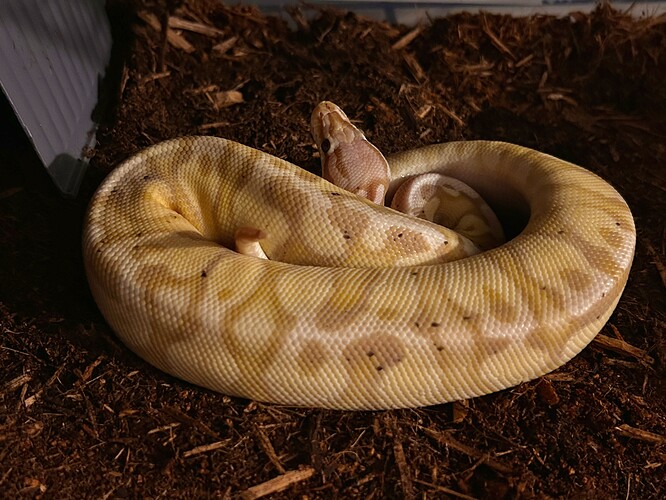Hi all,
I’m with DuskGlow Reptiles- new to breeding ball pythons but not new to the reptile hobby or overall animal health. I’ve spent many years working with animals in contexts where health, genetic, and behavioral screenings were standard before any sale or placement. Contracts and health guarantees were routine, and that experience is has me thinking about how I want to approach my ball python project.
Since this is a hobby for me, I have a bit more flexibility and time to devote to policies that might not be feasible at a larger scale. One thing I’m strongly considering is implementing regular health screenings for my breeding stock and future animals that I sell. This includes testing for things like Nido, Crypto, and routine annual vet checks- not just to ensure the health of my collection, but also to give buyers extra peace of mind when purchasing from me.
I completely understand that not every breeder is able (or needs) to do this for every snake. There are a lot of good and responsible ways to ensure healthy animals, especially in closed populations with good quarantine practices for new animals. But I’d love to hear from others who’ve gone down this path or have thoughts on it.
-
Do you think buyers care about or expect these kinds of screenings?
-
Have you seen value (or pushback) in offering vet-tested animals?
-
Are there specific labs, tests, or best practices you’d recommend or avoid?
Thanks in advance for any thoughts or experiences you’re willing to share!
— DuskGlow Reptiles
Photo of our Pastel Banana Yellow Belly Het Pied Het Desert Ghost male, “Bruiser”.
5 Likes
I think there is a value to these types of screenings. It gives peace of mind when acquiring animals sight unseen.
Unless I am familiar with the breeder(s) reputation, I tend to ask a lot of questions. Some breeders are very open about what they do but sometimes others, not so much.
When I purchased my blood pythons I exchanged well over one hundred e-mails with the breeder before finally buying.
Other breeders, instinct and research tells me a lot about what I want to know. There are a few that I wouldn’t hesitate to buy from. Others I need to get to know and others still that would never see my money.
While offering these screenings does not negate a quarantine they go a long way when it comes to how comfortable I am with shorter periods.
I normally quarantine for six months even if I have other animals from the same breeder. Others, I have had (still do) for a year or more before moving them into the main snake room.
Of course, how many generations away from wild caught influence that period of time but with screening I would be more comfortable with shorter quarantine. By that I mean, if the animals parents are wc then a year minimum. F2 or more and screenings would lessen that time. The effect being I can get more snakes, sooner.
4 Likes
It’s refreshing to see someone have this take on care and maintaining their collection. 
I’ve always quarantined my animals regardless of where they came from. It’s just the safest option. I also did not hesitate to have a necropsy performed when I did have an unexplained death in my collection. It was thankfully an isolated incident.
Unfortunately, you will likely see some people pushing back if you are charging more for an animal that has been fully vetted prior to sale. It’s unfortunate, but just where a lot of people stand on animals in general.
For someone who is also interested in that level of care for their own collection, you’ll be fine. One of the breeders I’ve purchased from twice so far regularly tests for things like Nido in their collection.
The top three animals that end up in shelter tend to be dogs and cats followed by rabbits.
Part of the reason a certain big box pet shop doesn’t carry rabbits is because of it. The other part was because people refused to pay a higher price for neutered rabbits. The store had decided to only sell them neutered to help reduce the number that ended up in shelters from unwanted litters.
But much like you see people do with cats… They expected them cheap from the store or free from some newspaper ad.
There are many people that still look at reptile veterinary care in a negative light … Either as naive individuals thinking it’s just an animal and don’t want to pay the money… Or as keepers who think they know better than vets. The first is just frustrating and hopefully will change with more education (and hopefully less corpo purchasing of pet hospitals). The second will hopefully change as people realize more reptile keepers are becoming vets with special interests.
3 Likes
